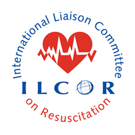The International Advisory Committee on Resuscitation (ILCOR) is dedicated to saving lives globally through resuscitation.
ILCOR’s mission is driven by its dedicated Task Forces. These teams of international experts in cardiovascular and emergency care conduct thorough reviews of the latest scientific research, resulting in guidelines and recommendations that shape emergency care practices around the world.
ILCOR has 6 task forces:
Advanced Life Support
Basic Life Support
Education Implementation and Teams
First Aid
Neonatal Life Support
Paediatric Life Support.
Task Forces work with international experts to search for, identify and evaluate the science that is available regarding their topic of interest using one of three main techniques or methodologies: a systematic review, a scoping review, or an Evidence Update.
For each completed systematic review, the Task Force then creates a Consensus on the Science that summarises (in a standardised way) the science that relates to that topic.
The information included in that Consensus on Science is then used by the Task Force to create Treatment Recommendations (when there is sufficient science available to support the recommendation) or Good Practice Statements (when experts come up with proposals for management when there is insufficient science to support a Treatment Recommendation).
The initial output of the Task Force science reviews is posted on the ILCOR website: costr.ILCOR.org
- The Systematic Reviews with their Consensus on Science with Treatment Recommendations (CoSTRs) are posted in draft format on the ILCOR website to allow submissions of public comment.
- Scoping reviews are posted in draft format on the ILCOR website for public comment.
- Evidence Updates are posted on the ILCOR website (currently for information only)
The comments received from the posting are reviewed and their content is evaluated to assess their impact on the science, and if there is any need to change the draft document.
The science reviews - including Systematic Reviews (with CoSTRs), Scoping Reviews, and Evidence Updates - are published each year in a summary document as a preprint in the first half of the calendar year, and in a final peer-reviewed publication in October or November.
Sign up here for regular notifications on the latest resuscitation science
